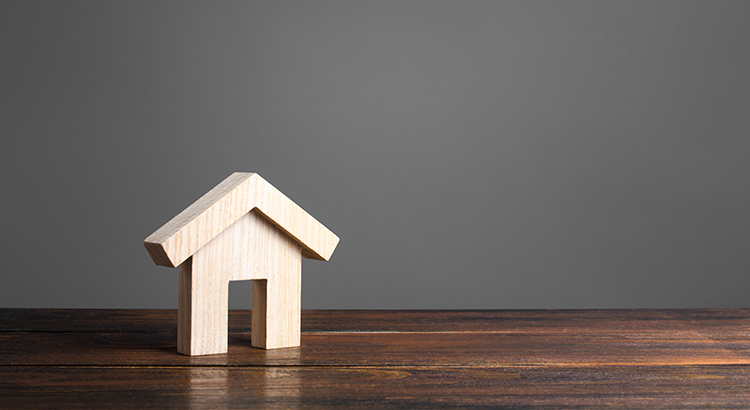In today’s real estate market, not every home sells as quickly as expected. If your house has been sitting on the market without an offer, it can be disheartening—but it doesn’t mean the situation is hopeless. Often, there are simple adjustments or strategies that can make all the difference. Here’s a guide on what to do if your house didn’t sell and how to turn things around for a successful second attempt.
1. Take a Step Back and Reassess
The first step is to evaluate what might have gone wrong. Start by asking yourself these key questions:
- Was the price competitive?
Overpricing is one of the most common reasons homes don’t sell. Buyers are savvy and unlikely to overpay, especially in a market with plenty of options. - Was your home marketed effectively?
If your property wasn’t reaching the right audience or didn’t stand out online, it could have been overlooked. - Is your home’s condition holding it back?
Deferred maintenance, outdated decor, or lack of curb appeal can deter buyers.
Reassessing these factors with the help of a trusted real estate agent can help you pinpoint the areas that need improvement.
2. Adjust Your Pricing Strategy
If your home didn’t sell, price is often the main culprit. While it’s natural to want to get the highest return possible, the market ultimately determines your home’s value. Consider the following steps:
- Review Comparable Sales (Comps): Look at recent sales of similar homes in your area. This will give you a clear picture of what buyers are willing to pay.
- Consider a Price Adjustment: Even a small reduction in price can attract new interest and signal to buyers that you’re serious about selling.
- Understand Buyer Perception: A home that lingers on the market can create a perception of being “overpriced” or having issues. Re-pricing can help reset buyer expectations.
3. Improve Your Home’s Appeal
A fresh perspective on your home’s presentation can make a significant impact. Here are some ways to enhance its appeal:
- Stage Your Home: Professional staging can help buyers visualize the space and create an emotional connection to your home.
- Enhance Curb Appeal: First impressions matter. Make sure your lawn is tidy, the exterior is clean, and the entryway is inviting.
- Tackle Repairs: Fix any noticeable issues, such as leaky faucets, scuffed walls, or broken fixtures. Even minor improvements can make your home more attractive.
4. Update Your Marketing Strategy
Effective marketing is essential to getting your home in front of the right buyers. Here are a few ways to boost visibility:
- Professional Photography and Videography: High-quality photos and videos make your listing stand out online. Consider a virtual tour to give buyers an immersive experience.
- Social Media Advertising: Targeted social media campaigns can reach potential buyers who might not be actively searching on traditional listing sites.
- Highlight Unique Features: Does your home have a stunning view, a large backyard, or recent renovations? Make sure these features are front and center in your marketing materials.
5. Consider Timing
The time of year can influence how quickly your home sells. If your initial listing coincided with a slower season, such as late fall or winter, relaunching during the spring or summer might yield better results. Discuss the best timing for your market with your agent.
6. Get Feedback from Buyers
One of the best ways to understand why your home didn’t sell is to gather feedback from buyers who viewed it. Ask your real estate agent for input from potential buyers and their agents. Common feedback might include:
- Concerns about price
- Issues with the home’s condition
- Features that didn’t meet buyer expectations
Use this feedback to make meaningful changes.
7. Hire the Right Agent
If your previous agent wasn’t proactive or communicative, it might be time to partner with a new one. Look for an agent with a strong track record, excellent marketing skills, and a deep understanding of your local market. A fresh perspective can often make all the difference.
8. Explore Other Options
If selling traditionally isn’t working, you might consider alternative solutions:
- Renting Out Your Home: If you’re not in a hurry to sell, renting could provide steady income while you wait for a better market.
- Selling to an Investor: Real estate investors may be willing to buy your home as-is, often with a quick closing timeline.
- Making Improvements and Relisting: If you can afford it, investing in upgrades could increase your home’s value and attract more buyers.
9. Stay Positive and Be Patient
It’s natural to feel frustrated when your home doesn’t sell, but it’s important to stay optimistic. Many homes that don’t sell initially go on to find the right buyer with some adjustments. Work closely with your agent, stay open to feedback, and be willing to adapt your strategy.
Final Thoughts
Selling a home takes preparation, strategy, and sometimes a little extra effort. If your house didn’t sell, use this as an opportunity to regroup and make the necessary changes. With the right adjustments—whether it’s pricing, marketing, or presentation—you can position your home for a successful sale the second time around.
Ready to relaunch your home with a fresh strategy? Contact me today to get started!

Providing guidance and assisting motivated buyers, sellers, tenants, landlords, and investors in marketing and purchasing property for the right price under the best terms. Determining clients’ needs and financial ability to purchase the best home for them. Call me today and let me help you find a home that can change your life!
